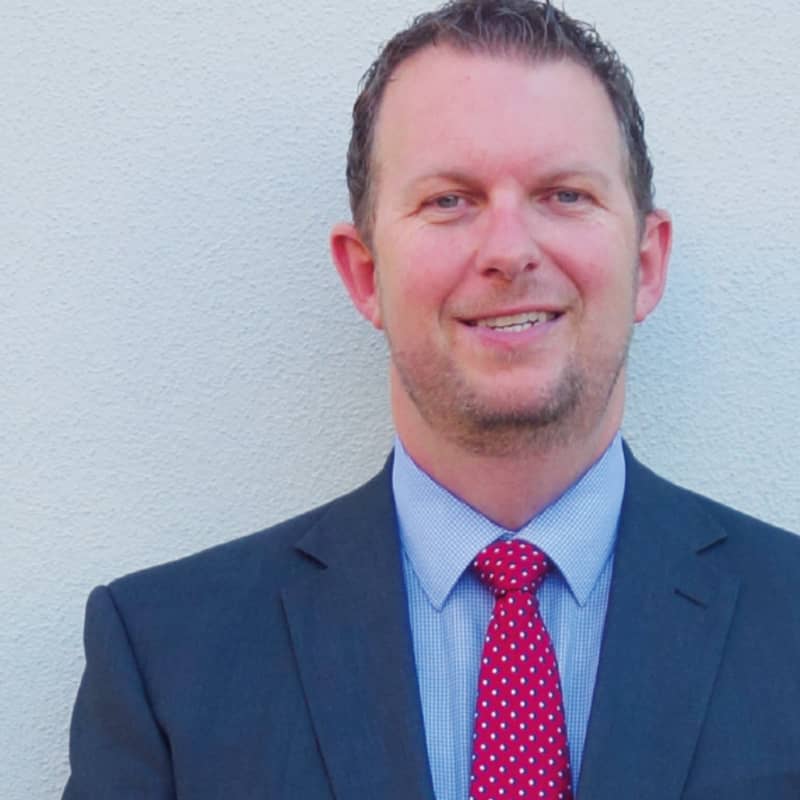The Professional Bodies
26th November 2021 | Journal Of Sales Transformation
Australian Institute of Sales, New Zealand Institute of Sales – Stuart Edmunds, Director; Association of Professional Sales – Andrew Hough, CEO

Association of Professional Sales

Australian Institute of Sales, New Zealand Institute of Sales
Stuart Edmund’s overview from New Zealand
In reality, we’re probably not a lot different from anywhere else in the world – more of the same, but different, and we’ll have twice what we needed pre-pandemic in the post-pandemic world. Some have done extraordinarily well; others have been devastated. For some, it has been skill; for others, fortunate circumstances; and yet others, through no lack of skill or effort or intentions, just sadly the wrong time/sector/industry/ran out of runway.
Q: What will be the top-three agenda items for sales leaders as businesses emerge from the pandemic?
SE: 1) Staffing (retention, attraction, development – with the skills shortage). 2) New-customer acquisition and accelerating pipeline. 3) Increasing virtual/remote selling capabilities.
AH: 1) Understanding that the future salesforce is something to be planned for but that the post-pandemic state has created a talent pool that is consciously not “falling into sales” as a career and choosing careers and professions they feel “matter”. 2) Building sales ecosystems that are FAIR in the way they treat, motivate and reward sellers in a way that puts their feelings at the centre of their efforts and creates great feeling and experience for customers, which ultimately accelerates revenues. 3) Understand that in a position of leadership “hitting the numbers” is not the defining legacy but the changing and motivating of the profession’s future “sellers” and changing the perception of sales is more of a legacy.
Q: Are these the same three agenda items that appear every year?
SE: In some ways, elements of each probably are, just with heightened urgency, intensity and need. The virtual/remote selling factor would be the exception here. This is a relatively new need that has been exponentially accelerated in the past 18 months.
AH: These may not have been consistently prioritised previously, but if sales leaders ignore them going forward, they will be destined to be categorised as a “number chaser” forever and as part of an unsustainable sales ecosystem.
Q: If so, what are the top-three new agenda items that sales leaders will be thinking about for 2022?
AH: 1) Creating the momentum in the country to reinforce sales as a worthy career and profession in order to reverse the looming seller shortage; joining with other companies and the Institute of Sales Professionals to amplify why sales is a great place to be. 2) Make themselves as employers more attractive to sellers, being seen as FAIR both internally and externally. 3) Develop their sellers to be more appealing to buyers, prospects and customers.
Q: How persistent will changes such as hybrid working be for sales organisations post-pandemic?
SE: I think almost all organisations will retain the hybrid working model for their sales organisations post-pandemic. The situation has proven the benefits and opportunities of working in this style from a productivity and efficiency perspective, as well as managing against shocks of potential future lockdowns or single point of risk/failure scenarios by showing that the sales organisations can work and succeed in a hybrid form. Only the doomed will mandate a complete return to the “old way”.
AH: The acceleration to digital interfaces and technologies will be permanent, with sales forces always focusing on digital engagements where possible. Some sales forces have shifted from 25% digital business to 60% during the pandemic, and are looking to have their field and account reps become more consultative, adding more value.
Q: How are supply-chain issues affecting sales organisations?
SE: Critically impacting. New Zealand being at the end of the earth for shipping and supply-chain routes is causing massive headaches for importers and exporters. Astronomical shipping cost increases, empty container glut, internal lockdowns restricting the movement of limited supplies around the country, some (large) freight companies have investigated privately chartered ships but are ultimately faced with all the same competitive pressures faced by everyone else. In summary, supply chain issues in New Zealand are causing massive problems for importing and exporting goods. Not good for a very remote trading nation with a very small population!
AH: Supply chains are being disrupted particularly in FMCG; however, most sales motions are not being affected by this issue. In fact, salespeople are using the issue of supply to encourage customers to order quickly to ensure delivery and avoid increased time to market.
Q: What are the top-three technology trends that will be on sales leaders’ agendas for 2023?
AH: 1) Increased and more accurate use of CRM systems, to ensure retention of information and customer history in a world where sales turnover is set to increase. Attrition or reduced tenure increase risk of knowledge loss (about customers) in a world where that places revenue at risk. Keeping accurate knowledge will be vital. 2) Enhanced skills in social platforms and presence in order to ensure sellers are seen as attractive by potential buyers. This is an important skill for sellers, but is going to be increasingly hard to manage properly going forward. 3) Automation of digital omnichannels and use of those channels by customers, eg field sales fulfilling orders via digital online capability whilst consulting on more strategic elements and joint opportunities with customers.
Q: What’s the current situation with respect to AI in sales?
SE: There is a growing awareness of AI and its place in sales. A huge amount of education is needed with many organisations, as most are still lagging in their adoption of a Sales Tech stack, or a digital transformation in any substantive sense. Of course, there are always the leaders (many international companies in this group) which have the advantage of being part of an international company and are driving the introduction, use and value from tools in the AI toolbox. In some cases, this might be through best-of-breed for a tailormade individual solution, or as part of a best-in-class solution (eg enterprise Salesforce 360 implementation or similar). Overall, the adoption of Sales Tech and AI tools in sales would still be very much in its infancy here.
AH: AI can replicate human traits but it can’t be human, so I don’t envisage it will take over face-to-face or inside-sales activities. However, AI (ie bots) are increasingly being used in sales interactions online.
Q: What are the key talent issues for sales leaders post-pandemic: recruitment, development, retention?
SE: Skill shortages have only been exacerbated post-pandemic along all the same dimensions felt pre-pandemic: recruitment, skills, retention, pressure/need to achieve target, attraction to sales profession.
AH: These are interesting. I have spoken to over 20 sales and business leaders over the past 30 days and not one has said they are finding sellers easily. Post-pandemic, the Gen Z generation are consciously not “falling” into sales. Millennials are just not loyal, and even baby boomers are looking for different lifestyles. So, retaining and developing sellers is crucial, and making yourself attractive to potential sellers is imperative if leaders are to grow. Development has to change to self-directed learning programs with sellers owning (but supported by employers) their own development.
Q: Have you noticed a change in the skill sets required for salespeople, since the onset of the pandemic?
SE: Salespeople and companies that were well-positioned and experienced to operate remotely/virtually adapted quickly to capitalise on their operating advantage. Upping the ante with communications skills also stood salespeople in good stead when communicating with customers much more intentionally.
AH: Digital capability and remote relationship management.
Q: What are the key skills for a) salespeople and b) sales leaders going forward?
SE: Salespeople: communications, being able to position and articulate a truly value-based proposition, agility by adapting to opportunities and being more creative in responses and solutions for customers, heightened forward planning and risk-management conversations. Sales leaders: coaching and talent development, driving digital transformation and exploiting more value from technology in the sales domain; leadership in deconstructing silos and fiefdoms to take a much more holistic revenue perspective inclusive of marketing, sales, customer success, post-sales support, and so on.
AH: For sellers, it’s the skill of self-learning, deliberate practice and adaptability. For leaders, it’s empathy, ethics and purposeful growth strategy.
Q: How much of a priority is salespeople’s welfare?
SE: Unsurprisingly, there is a spectrum of views related to salespeople’s welfare. Different industry sectors, company size, the magnitude of business dis/stress because of the past 18 months, and numerous other factors feed into how the company and management treat salespeople. Fortunate and well-positioned companies in prospering industries are thriving and supporting salespeople (and can afford to do so) very well, throwing a lot at their staff. Those companies on the other side of the chasm, more affected by extended lockdowns or in other distressed sectors, seem to be, for the most part, making best endeavours towards supporting salespeople’s welfare, retaining key sales staff; however, in many cases are simply unable to afford or don’t have the degree of latitude and flexibility due to the widespread distressed state their business/sector is operating in.
AH: It will be a top three priority.

